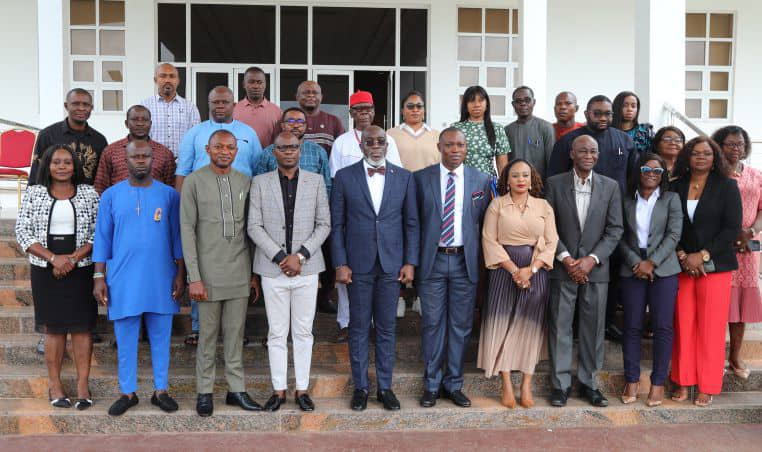Ben Ezechime, Enugu
Governor Peter Mbah of Enugu State has said that his manifesto during the 2023 election was empirically based, saying that data play significant role in decision-making in his administration.
Mbah said this during a two-day workshop on the Monetary and Multi-Dimensional Poverty Rate Survey at the Sub-National Level in Enugu State.
He noted that his government had always determined to achieve a zero head count in the poverty index in the state.
Represented by the Secretary to the State Government, Professor Chidiebere Onyia, Mbah said: “This is one year and a few weeks into this administration, I can assure you that what is happening today is His Excellency’s determination to continue to partner with institutions that can add value to the things he has set out to do in this government.
“You will notice that everything that was in his manifesto and later in transitional plan report was empirically based. Data are very important aspect of our decision-making process in Enugu State. And His Excellency said that what he was trying to do was to achieve a zero head count in our poverty index.
“The whole idea is not just for us to create an economy that is reversible but to create economy that is irreversible in terms of the way we approach projects when we measure our GDP,” he said.
Earlier, the commissioner for Human Development and Poverty Eradication, Dr Malachy Agbo stated that lack of baseline data on the rate of multi-dimensional poverty across the 17 local government areas and 260 political wards of Enugu State as well as the limited statistics of the three senatorial districts available from the National Bureau of Statistics, were the gaps needed to be addressed urgently.
He said that the governor had laudable programmes for the state including additional 81 road infrastructure development after 71 in one year, rehabilitation of over 18-year-abandoned International Conference Center, inaugurating 120-million-liter water supply scheme, establishment of 260 SMART & GREEN Integrated school, and other projects.
According to him, there was no baseline data to assess the level of success of each programme on poverty.
“While these laudable programmes and policies are beginning to yield desired results, there was no baseline data to assess the level of success of each programme vis-à-vis the rate of poverty (both headcount and multi-dimensional) in our electoral wards and local government areas when the administration started.
“Therefore, the need to carry out this survey is compelling. By adopting a multi-dimensional approach, Enugu State can better identify and address the root causes of poverty, leading to more effective and sustainable poverty eradication efforts. Additionally, multi-dimensional poverty measurement can help monitor progress towards the Sustainable Development Goals and other international development targets,” the Commissioner said.

